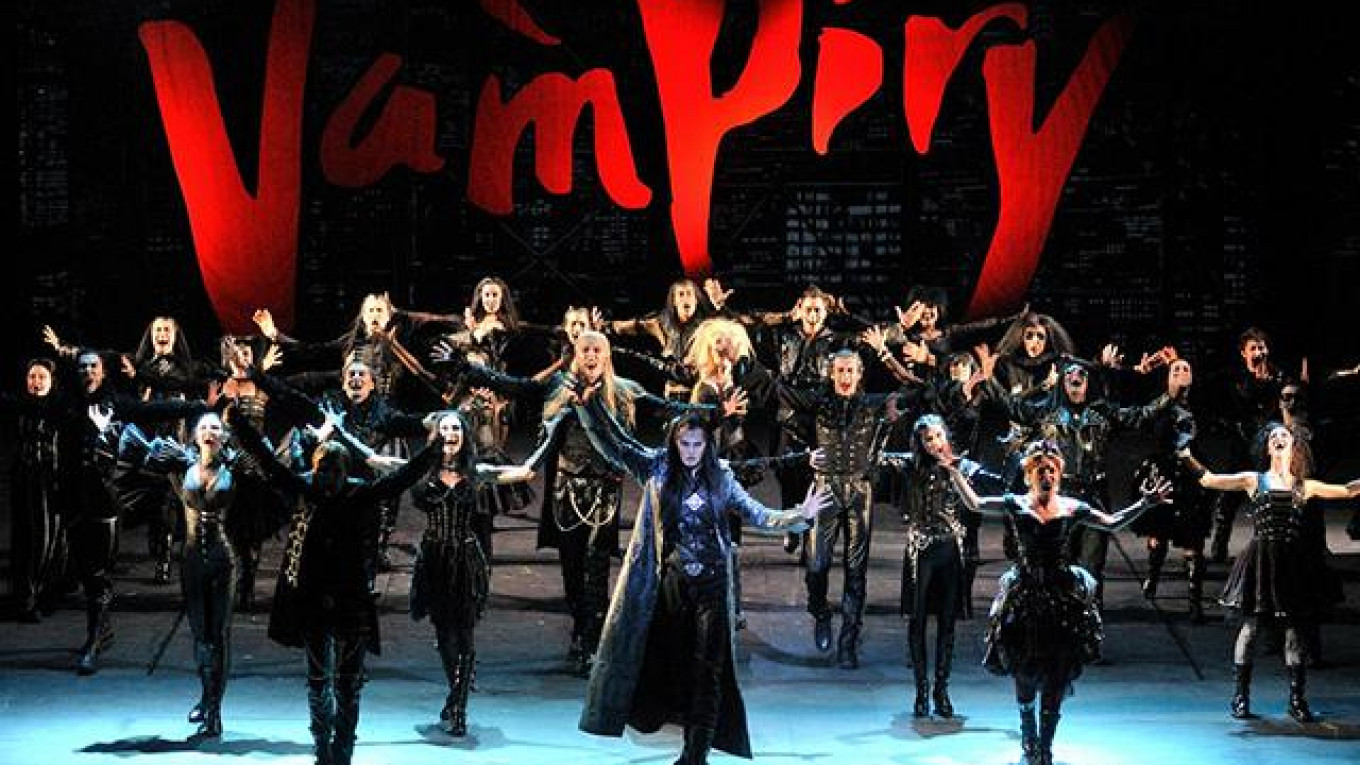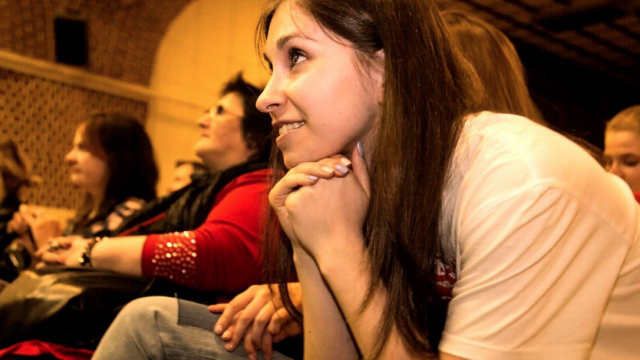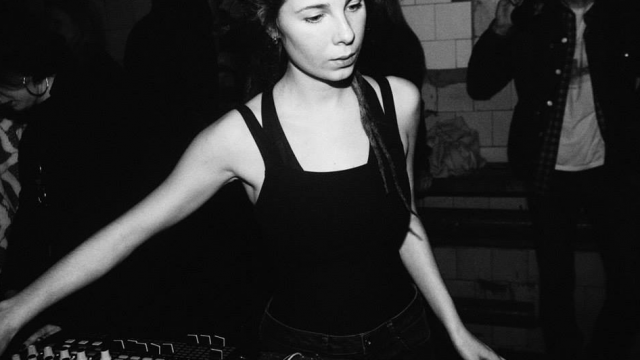Moscow audiences
will soon have the chance to see “Dance of the Vampires,” a musical that took
St. Petersburg by storm during a three-year run that ended in 2014. Directed by
Cornelius Baltus, the show is second in popularity only to “Phantom of the
Opera” in Europe. The song-filled story of vampires, lust, and love will do a
short run in St. Petersburg at the city’s Musical Comedy Theater later this
month before arriving at Moscow’s MDM Theater.
The shows’s director, Cornelius Baltus, has also staged musicals including “The Lion King” and “Joseph and the Amazing Technicolor Dreamcoat.” In April his newest show, “Hollywood Diva,” received Russia’s highest theater award, the Golden Mask. In an interview with The Moscow Times, Baltus talks about the Russian musical scene, his childhood dreams coming true in Russia, and why “Dance of the Vampires” is a musical about our modern lives.
TMT: “Hollywood Diva” is the second musical you have directed (after “Dance of the Vampires”) that has been awarded The Golden Mask award. Did you expect this?
CB: Absolutely not! With all the other great competitors and the turmoil between Russia and Europe, I did not expect it at all. From a cultural point of view this country is so rich and the competition is strong. The award was very unexpected.
TMT: When did your Russian professional journey begin?
CB: It began a long time ago, when I was a ballet student learning the Vaganova technique at the ballet academy in Amsterdam. I dreamed of seeing the Mariinsky Theater ballet, and I did on one of my first trips to St. Petersburg. I was invited there by the head of the Musical Comedy Theater, Yury Schwarzkopf. He had previously seen “Dance of The Vampires” in Vienna, and his deepest wish was to stage the musical in Russia. I asked him several times if he was sure, since producers tend to underestimate the technical complexity of the show. Yury was, and the show became a huge success and was awarded The Golden Mask.
TMT: When you introduced your first musical, “Dance of the Vampires,” in St. Petersburg in 2011, did you encounter any obstacles?
CB: Oh, dozens. We were boycotted both in-house by reluctant workers and outside by people who were not open to change. It was the same with “Hollywood Diva” [an adaptation of the 1936 opera “Axel at the Gates of Heaven”]. People were whispering that it would be a failure, but we knew what we were doing. Another serious challenge was that regular Russian theaters do not have European technical standards and a lot of effects are done by hand so many adjustments had to be made.
TMT: Many foreigners say that Russian challenges make the work much more interesting…
CB: And they are right. You need to stay calm and overcome a lot of problems and you need to know what you want. After all, it’s a theater. Where in Europe do you get an orchestra of 36 people? Where do you get a cast of 64? Where would you say to a producer: “I need 30 dancers on stage?” In Europe they would say: “Are you crazy? It’s way too expensive.” But I love making real theater, not an LED wall with three people and an orchestra on a click track.
TMT: What would you say about the standard of musical actors and dancers in Russia?
CB: Fabulous! I love working with these people. They are well-trained and have amazing talent. I work in a peculiar old-fashioned way, and I think they are very thankful for my approach, instead of the “I am the big director and you are a small actor” attitude. I believe in equal energy and collaboration. “Dance of the Vampires” launched the careers of many actors who later became stars — like Ivan Ozhogin, who performed the same role in Berlin.
TMT: Was “Dance of the Vampires” adapted for Russia?
CB: I try to adapt the show according to local tastes. For instance, in Berlin it feels more British in style. In Budapest I worked with a local designer and we were very close to Transylvania — where the story takes place — so we needed a set that was darker, grander and more sinister. When I staged the musical in Russia I learned village stories about “vurdalaki,” or vampires, so we were quite creative and introduced new elements to the show.
TMT: What can the audience expect from the new production of “Dance of the Vampires”?
CB: A wonderful evening with a dark fairy tale-like story that’s witty, intense and full of sensuality and hidden danger. There will be no new adaptations because we want to share the same high level performance with the Moscow audience as in St. Petersburg.
TMT: Why do you think the musical is in such high demand?
CB: This story connects to the times we are living in. Krolock’s main song “The Insatiable Greed” speaks of his unsatisfied hunger: that’s us — many people who want bigger cars, more beautiful wives, bigger houses, more success. When does it stop and when we go start truly caring for each other? Krolock is in fact unhappy in his world of insatiable greed. I can’t wait to share this wonderful spectacle with the Moscow audiences. I am also working on a new project for St. Petersburg, a very interesting Russian story, but I cannot disclose the details yet.
MDM Theater Moscow. 28 Komsomolsky Prospekt. Metro Frunzenskaya (сlosed), Park Kultury. + 7 (499) 248 6688, mdmpalace.ru. From Oct. 29.
A Message from The Moscow Times:
Dear readers,
We are facing unprecedented challenges. Russia's Prosecutor General's Office has designated The Moscow Times as an "undesirable" organization, criminalizing our work and putting our staff at risk of prosecution. This follows our earlier unjust labeling as a "foreign agent."
These actions are direct attempts to silence independent journalism in Russia. The authorities claim our work "discredits the decisions of the Russian leadership." We see things differently: we strive to provide accurate, unbiased reporting on Russia.
We, the journalists of The Moscow Times, refuse to be silenced. But to continue our work, we need your help.
Your support, no matter how small, makes a world of difference. If you can, please support us monthly starting from just $2. It's quick to set up, and every contribution makes a significant impact.
By supporting The Moscow Times, you're defending open, independent journalism in the face of repression. Thank you for standing with us.
Remind me later.






